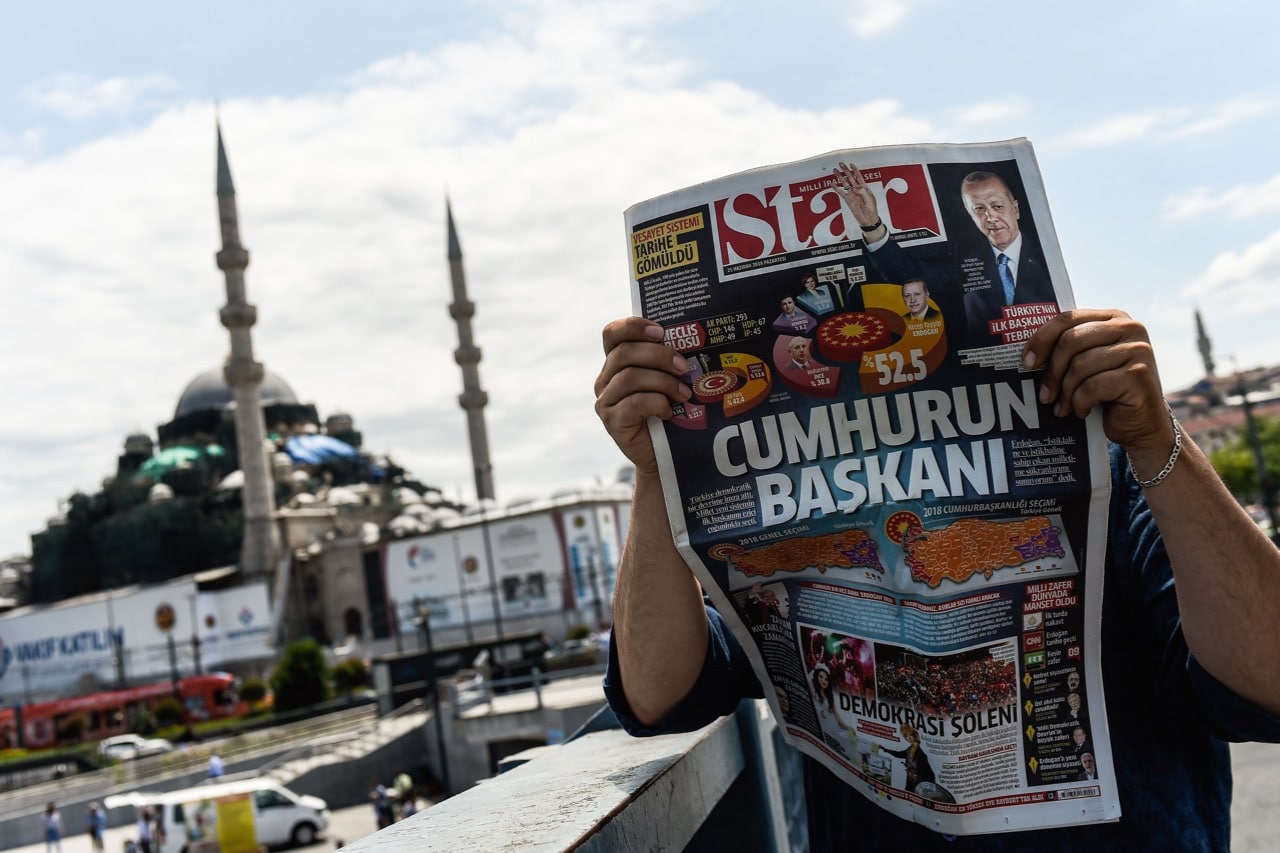Although the state of emergency is expected to be lifted on 18 July, the government this week dismissed 18,000 civil servants and closed three newspapers and one television station.
This statement was originally published on freeturkeyjournalists.ipi.media on 11 July 2018.
The state of emergency in Turkey, which has been extended seven times, is scheduled to be lifted on July 18, 2018, almost two years to the day after its initial implementation following an attempted coup that Turkey’s government has blamed on the exiled cleric Fetullah Gülen.
While the move would appear to be a positive step toward restoring the rule of law in Turkey, executive decrees passed during the state of emergency are poised to remain in force, with several troubling emergency decrees being issued in recent days.
On Sunday, July 9, Turkey’s government published Decree No. 701, which ordered the closure of three newspapers and one television station as well as the dismissal of more than 18,000 civil servants and nearly 200 academics. The newspapers targeted were the pro-Kurdish dailies Özgürlükçü Demokrasi and Halkın Nabzı and the Kurdish-language newspaper Welat. According to the decree, the newspapers’ assets will be liquidated and transferred to the treasury, now headed by the son-in-law of President Recep Tayyip Erdoğan, Berat Albayrak.
Özgürlükçü Demokrasi was seized by the Turkish authorities on March 28, 2018 and a government appointee put in charge. The newspaper’s printing press was also taken over. As many as 20 people were arrested, eight of whom remain in pre-trial detention. It is thought that the paper was shut down for its criticism of Turkey’s military incursion into the Kurdish region of Afrin in northern Syria.
Yesterday, Turkish authorities issued Decree No. 703, which permits any graduate of a four-year degree program to be able to sit the examination to become an administrative judge. The rule raises concerns in light of the general government-led purge of the judiciary, which has paved the way for flagrant violations of journalists’ and other defendants’ right to a fair trial.
In addition to the executive decrees passed during the state of emergency, Turkey’s constitution as amended in an April 2017 referendum now grants Erdoğan wide-ranging law-making powers, allowing him to bypass the country’s parliament.
International Press Institute (IPI) Turkey Advocacy Coordinator Caroline Stockford warned that the end of Turkey’s state of emergency would not necessarily translate to an improvement in the country’s dire press freedom situation.
“The emergency decrees, which should have been temporary measures, have passed into law and have caused untold damage to freedom of expression and independent media in Turkey”, she said. “Turkey must restore the rule of law and must repeal any decrees that stand in contrast to its international obligations to protect press freedom.”
Newspaper owner: No recourse to challenge decree
The recently passed Decree No. 701, Stockford added, showed again that “Kurdish newspapers and journalists continue to be especially targeted in an attempt to suppress news and opinion contrary to the government line”.
In an interview with IPI, Ishak Karakaş, the owner of Halkın Nabzı, which was ordered shut by Decree No. 701, expressed shock at being targeted in this latest attack on independent media in Turkey.
“We were a newspaper publishing in Turkish, and the Kurdish languages of Kurmanji and Zazaki”, Karakaş explained. “Our editorial line was to promote two things: peace and democracy. We never had one court case opened against us for any of our articles. Despite this, I came home the other day and read on the television subtitles that my newspaper had been shut down by decree. I rang the authorities, but no one could tell me why we’d been shut down.”
“Turkey’s authorities do not want a single opposition voice to be heard,” he continued. “They came and took everything. Our televisions, computers, laptops and all moveable goods. Their value will all be transferred to the treasury. We can’t open a court case. There is only a State of Emergency Bureau that you can call, and they will not do anything. For now, we just don’t know what to do.”
Human rights bodies condemn abuse of powersInternational human rights bodies have previously condemned the use of Turkey’s state of emergency to restrict fundamental rights.
In March 2018, the U.N. High Commissioner for Human Rights, Zeid Ra’ad al-Hussein, observed: “Clearly, the successive states of emergency declared in Turkey have been used to severely and arbitrarily curtail the human rights of a very large number of people.”
Already in 2016, the Venice Commission, a group of constitutional law experts that advises the Council of Europe, warned against the misuse of emergency in powers in Turkey, noting that the relevant declaration “did not contain any reference to the public danger it was addressing, and did not describe, even briefly, the measures to be taken to restore legal order”.
It added: “The provisions of non-governmental decree laws should lose their legal effect with the expiry of the state of emergency. Permanent changes to legislation should not be introduced through such decree laws, but must be left to ordinary legislation.”
Turkey’s state of emergency may be scheduled to end on July 18, 2018. But the damage to independent Turkish and Kurdish media and the chilling effect on the few remaining independent newspapers has already been devastatingly achieved.



